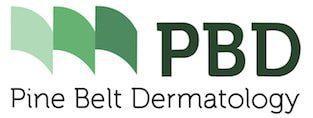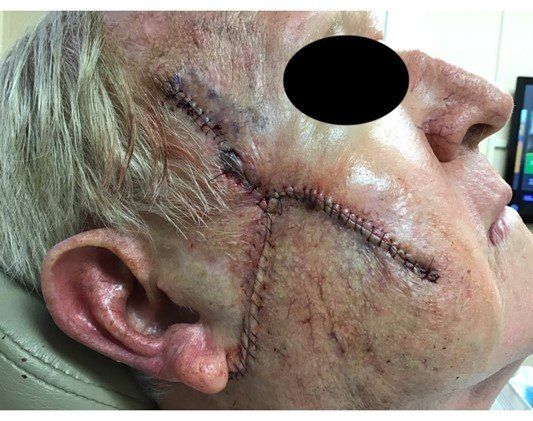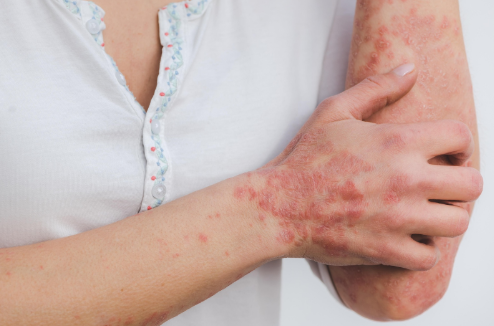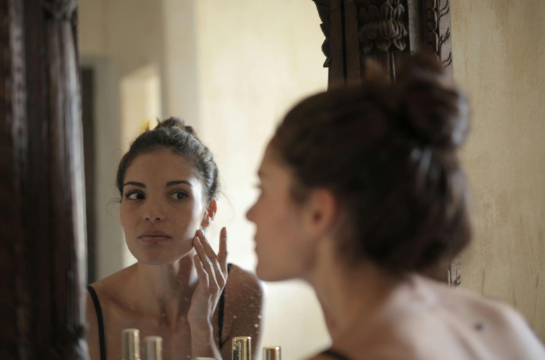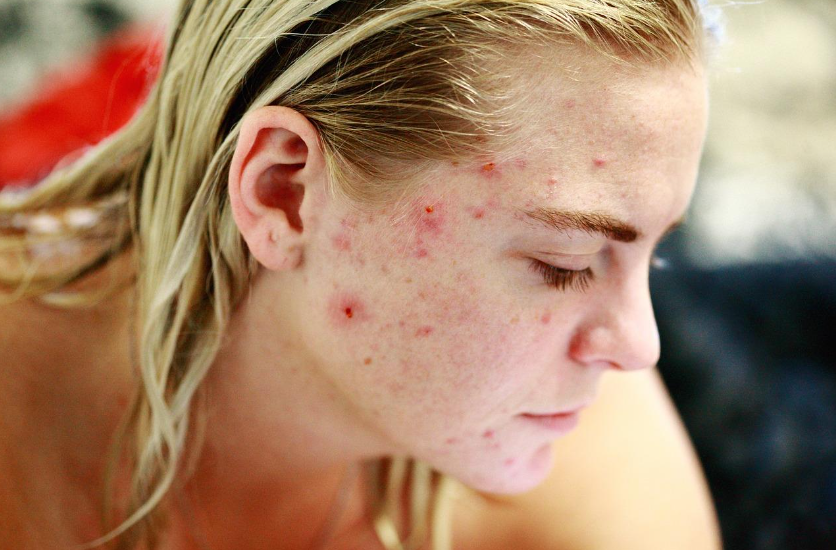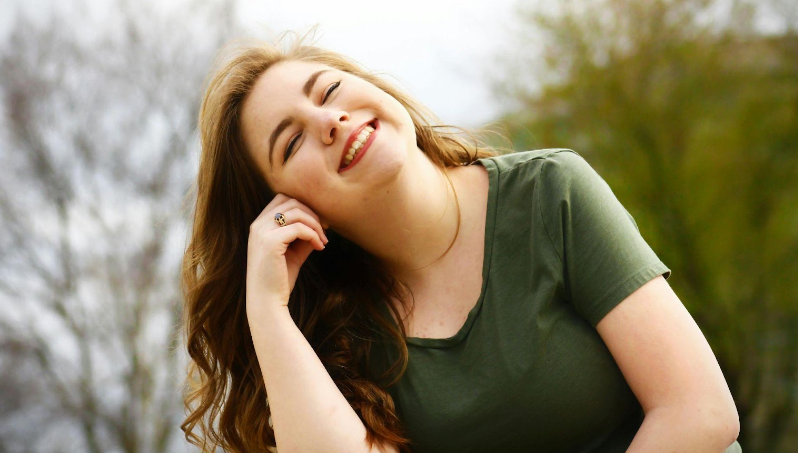Basal Cell Carcinoma, Case of the Month, February 2021
Basal Cell Carcinoma
A 71-year-old male patient presented to our office for the evaluation of non-healing lesions on his right cheek and right temple (Figure 1). Biopsies of the lesions demonstrated a nodular and micronodular basal cell carcinoma with squamous differentiation of the right temple and an infiltrative basal cell carcinoma of the right cheek. Both micronodular and infiltrative basal cell carcinomas are typically more aggressive than other forms of basal cell carcinoma and can be much larger than they appear to be.
Due to the aggressive nature of the lesions and in attempt to conserve as much tissue as possible, Mohs surgery was performed. After 1 stage of surgery on the right temple and 3 stages of surgery on the right cheek, the final defects were significant and can be seen below (Figure 2).
Closure options for this defect included grafting, secondary intention healing (allow the wounds to heal on their own) and local tissue flaps. The patient stated that he did not want a graft and he did not want to let the wounds heal on their own. Together with the patient and his family, we agreed upon an inferiorly based rotation flap for the larger defect on the cheek and primary closure of the defect on the temple. The final closure can be seen below (Figure 3).
Sutures were removed after one week at which time excellent early surgical results were noted. Normal anatomy was maintained and there was no distortion of his ear or eyelid. He and his family were very happy with the results (Figure 4).
At his 6-week follow-up visit, the surgical outcome is fantastic considering the large defect that was repaired (Figure 5).



Petal Office
Phone:
Fax:
601-336-7826
Address:
Hours of Operation:
Mon-Fri: 8:00am to 4:30pm
Hattiesburg Office
Phone:
Fax:
601-475-9969
Address:
Hours of Operation:
Mon-Fri: 8:00am to 4:30pm
Ellisville Office
Biloxi Office
Phone:
Fax:
228-232-0874
Address:
1009 Tommy Munro Drive, Suite A
Hours of Operation:
Mon-Fri: 8:00am to 4:30pm
Ocean Springs Office
All Rights Reserved | Pine Belt Dermatology
